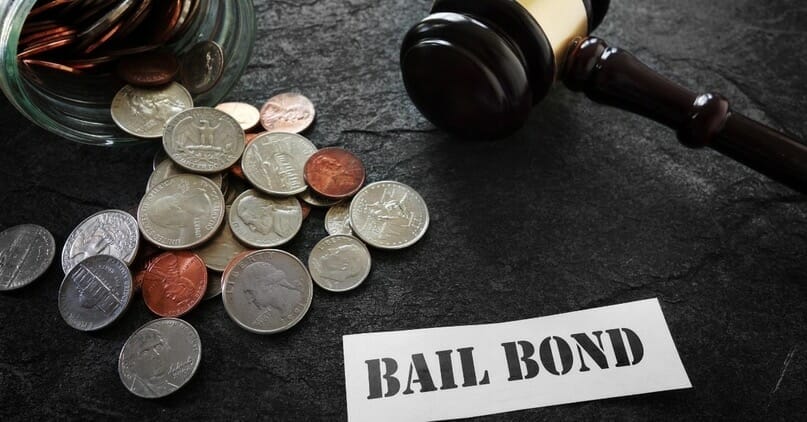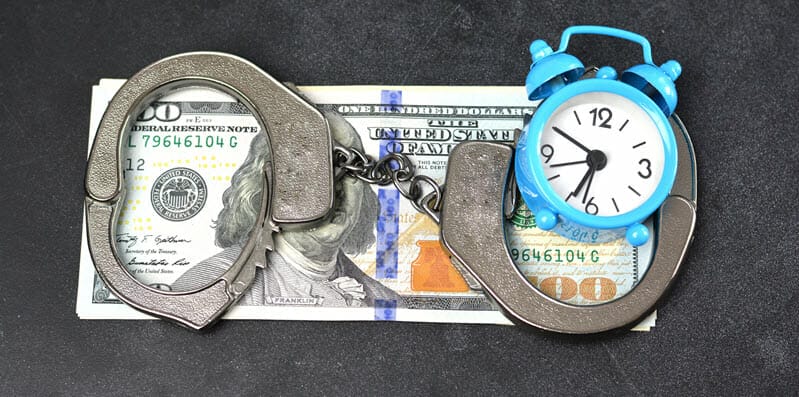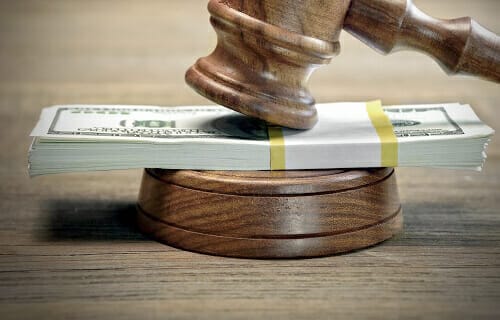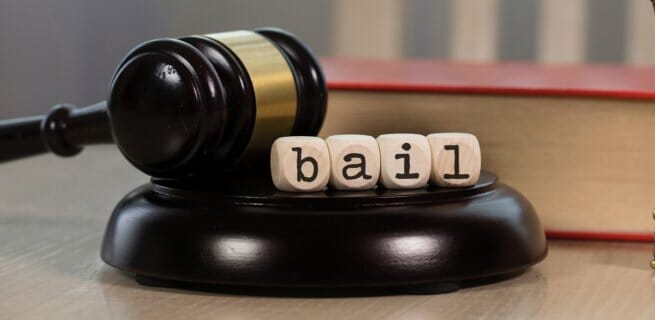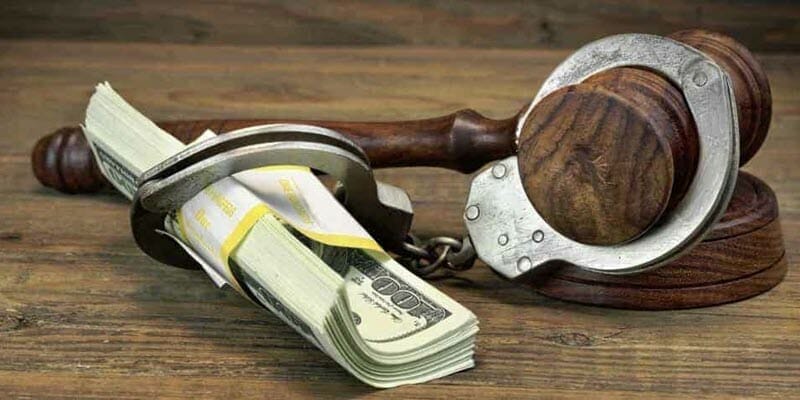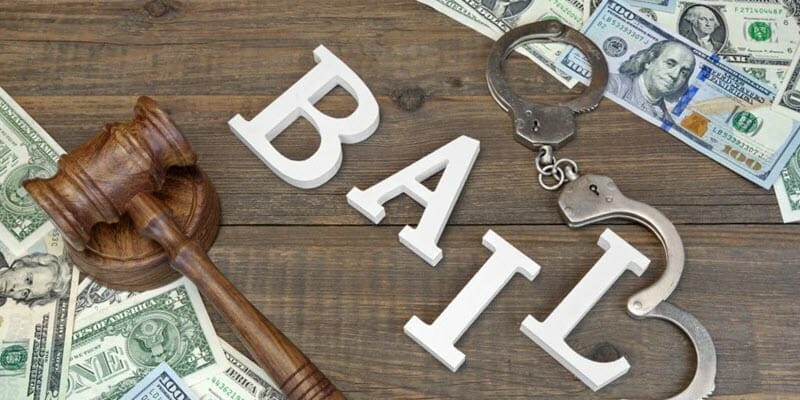
- Felonies
- *
- Misdemeanors
- *
- Drug/Narcotics Violations
- *
- Sex Offenses
- *
- Gun / Weapons Violations
- *
- Robbery
- *
- Burglary
- *
- Assault
- *
- Theft
- *
- White Collar Crimes
- *
- Domestic Assualt
- *
- Property Damage
- *
If Bail is Set, Does this Mean You Were Charged With a Crime?
Most people do not set out to get arrested or taken into police custody, but mistakes can happen. People want to get out of police custody immediately after an arrest. The most common way to get released quickly after an arrest is by paying your bail.
Are You Charged With a Crime If the Bail Amount Is Set?
The gears of the legal system often turn slowly and sometimes seem to come to a screeching halt. A lot of people wonder, does bail mean you have been charged with a crime? Well, the answer to the question does bail mean you have been charged with a crime is, it is important to note that once bail amounts are set after an arrest, you have likely been charged with a crime. Bail is the posting of property, surety bond, or cash that a person pledges to a court after they have been arrested and charged with a crime. It is to ensure the defendant will appear in court as required, and if the defendant does not show up, the bail may be forfeited and an arrest warrant issued.
Common criminal charges and crimes often have set bail schedule amounts that can be paid in cash. A bail schedule allows you to be released quickly from jail after an arrest without attending the first appearance before a judge.
You may also be released if you have been held for 72 hours and remain uncharged. Just because you are released does not mean you are out of trouble. The DA could send your charges for crimes in the mail or have you appear in court for an arraignment.
You Are Innocent Until Proven Guilty
The foundation of the United States legal system is the premise of being innocent until proven guilty. For example, if you have been accused of an offense, the court must prove you are guilty. In other words, the state has the burden of proof.
To meet the burden of proof, the district attorney must present evidence to the court that proves beyond reasonable doubt that you committed the offense The DA presents this evidence in the bail hearing and trial.
How Is Bail Set After an Arrest?
In most cases, judges are responsible for setting bail. Because people want to get released as quickly as they can, most courts use bail schedules.
Thisschedule is a list of common charges and set bail amounts. By paying the police station's bail schedule, defendants can get out of jail as soon as they go through the booking process.
If a person cannot afford the cash bail schedule, they can stand before the judge in a bail hearing and ask for the amount to be lowered.
What Does the Judge Consider When Deciding Bail?
Judges consider multiple factors during a bail hearing. The judge will evaluate the following while setting the amount.
- The nature of the alleged offense
- The defendant's past warrant and criminal history
- The defendant's personal status, including their employment, family, and assets
- The defendant's past court appearance history
- The defendant's ties to the community
- The defendant's danger to the community
Can a Judge Deny Bail?
Judges can deny or refuse bail for multiple reasons, including the following.
- If an individual is charged with a serious felony, such as rape, judges may set bail incredibly high or deny it altogether.
- Judges are likely to deny bail when an arrested individual is a repeat offender.
- If an arrested individual is a flight risk, judges will deny bail.
- Non-U.S. citizens will likely be denied bail because of their risk of fleeing to their home country.
- Judges will deny setting bail when a person is deemed a serious threat to the community.
Bail Cannot Be Excessive By Law
According to the 8th Amendment of the United States Constitution, bail may not be excessive. According to U.S. law, bail should only be used to ensure an arrested individual shows up for their court appearance. For example, bail cannot be used to fund the government or punish the individual.
Although laws are in place to prevent judges from setting excessive bail amounts, judges do not always heed the law. Judges sometimes set bail amounts unreasonably high, especially for a felony criminal offense.
What Happens if Bail Is Unaffordable?
If bail is unaffordable, the defendant's lawyer or defense attorney can petition for a reduction in the amount. A bail reduction hearing could result in the defense attorney successfully convincing the judge to lower the amount.
Conditions of Release
When a judge sets bail, they will also determine the conditions of release. Just as defendants must appear in court, they must also meet the conditions of release or face a revocation of their bail.
Judges determine the conditions of release based on the charges and their discretion. Some common conditions include the following.
Mandatory Reporting
Judges will often require defendants to regularly check in with pretrial officers to keep track of them. This check-in is similar to those carried out by parolees or those on probation.
Restrictions on Travel
Judges often place travel restrictions on defendants to prevent them from fleeing the state or country to skip trial. Occasionally, judges will allow exceptions for visiting a dying loved one or other essential needs for travel.
Requirements for Employment
If the arrested individual is employed, a condition of release may be that they must show up for work every day during their release. Unemployed criminal defendants may be asked to pursue employment.
Cleanness and Sobriety
Those charged with alcohol or drug-related charges will typically be required to refrain from using drugs or alcohol. The defendant may need to submit to routine and random drug and alcohol testing.
No Contact
If the individual committed a criminal offense against someone, they might be given a no-contact order. This type of order is often used in domestic violence cases to prevent the defendant from trying to get in contact with or retaliating against the victim.
Weapon Restriction
Judges can require criminal defendants to surrender all weapons, especially for those accused of committing a felony. Weapon restrictions are common, even when a defendant's criminal charges are not weapon-related.
Classes Mandated by the Courts
Depending on the charges, defendants may also be required to take classes. For example, these classes may include drug education, anger management, or behavioral classes.
Options to Post Bail
Once a judge determines bail, defendants have the right to pay for their release and go home. There are multiple options available, depending on the defendant's needs.
- You can settle the full cash bail. Most districts require a cashier's check rather than cash.
- You can also put up property with the same or greater value than the bail set amount.
- The defendant can hire a bondsman to secure a bond.
Will I Get My Bail Money Back?
After posting bail, you are not guaranteed a refund. If the defendant does not show up for their court dates, the judge revokes the bail and will issue a warrant for arrest.
For example, if you show up for all court dates, you will receive a check for the full bail amount refund upon the end of your trial. Even if you are found guilty, you will still receive your cash bail money back.
Should you post property collateral, you will receive your property back after the trial completes. Just like with cash, if the defendant does not show, the property is seized by the district.
How to Hire a Bondsman
Defendants have the right to hire a bail bondsman to post bail on their behalf. The defendant must pay a fee for these bond services.
The fee amount is determined by the state. This fee is non-refundable and is a percentage of the bail. Once you settle a bail bond fee, you will not receive a refund even if you are found not guilty.
Tips for Choosing a Bondsman
Choosing the right bondsman is essential for a seamless experience. The goal of seeking a bail agent is to get the defendant released as quickly as possible. The following offers some tips for choosing a bail bond agent.
- Ensure they are licensed by the state.
- Make sure the fee schedule is upfront and easy to understand.
- The bondsman should treat you with respect and compassion.
You should never hire a bondsman that tries to contact you in jail. If a bondsman makes you feel uncomfortable or seems rushed, you should look elsewhere for these services.
Allow Us to Help
If you need a bail bond, contact us right away. We offer confidential, compassionate, and rapid services.
Traversing the legal system is not easy. The challenges a defendant faces, especially with first-time charges, can become highly stressful.
We are a trusted name in bail bonds and will offer you help with any questions you may have. If you feel confused or afraid, we are here to provide information and steer you in the right direction.
Getting out of jail with a bondsman is a seamless process because we take care of the burden for you. Contact us today to get started.





